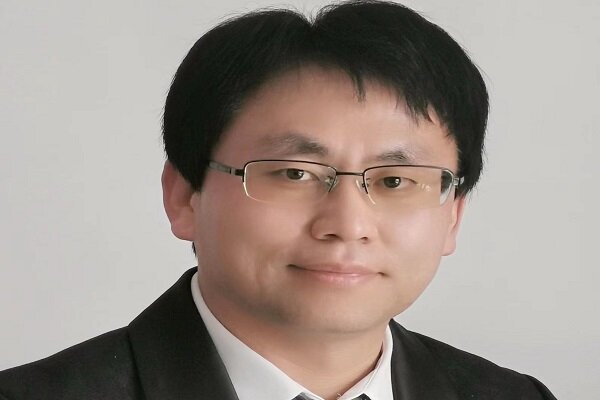Exclusive: China’s UNSC stance on Iran boosts its credibility as mediator, says Chinese scholar
Professor Fan notes Beijing’s support is grounded in fairness, justice, and universal international interests

TEHRAN- As debates intensify at the United Nations following the Security Council’s failure to extend sanctions relief for Iran, global attention has shifted to the broader geopolitical rift between Western powers and rising challengers such as China and Russia.
The snapback mechanism’s reactivation has revived questions about the future of the Joint Comprehensive Plan of Action (JCPOA), the credibility of multilateral institutions, and the balance of power in a world increasingly divided along ideological lines.
To shed light on these developments, the Tehran Times conducted an exclusive interview with Professor Hongda Fan, director of the China–Middle East Center at Shaoxing University.
In this conversation, he examines how China’s stance may reshape the security architecture of West Asia, enhance Beijing’s credibility as a mediator, and accelerate the global transition toward a multipolar order. He also reflects on the significance of the 25-year comprehensive cooperation agreement between China and Iran, the challenges posed by Western sanctions, and the prospects for deeper bilateral cooperation in areas such as energy, infrastructure, and technology.
Below is the full text of the interview:
Do you view China’s rejection of the snapback as a direct challenge to Washington’s strategy of using sanctions as an instrument of foreign policy?
The United States was the core factor that prevented the implementation of the JCPOA as planned, while Iran was forced to reduce its obligations under the agreement due to the inability to obtain guarantees. China's opposition is based on international law and the fact that the unilateral withdrawal of the United States from the JCPOA led to another escalation of the Iran nuclear crisis.
Could this move deepen the ideological divide between China’s vision of a multipolar world and the West’s insistence on maintaining dominance through sanctions and military alliances?
Unfortunately, the world is currently experiencing severe division. The international order dominated by Western powers is facing serious challenges, and China and developing countries need a more fair and reasonable international order. This is the divergence between the two camps in the world.
How do you see China’s position on Iran shaping the security architecture of the Middle East?
There is no doubt that Iran is a regional power and has a significant impact on the development of the region. In the current changing regional politics, China hopes that Iran can work with neighbors to promote greater stability and peace in the region.
Could China’s support for Iran at the UNSC enhance Beijing’s credibility as a mediator in regional conflicts?
China's support for Iran in the United Nations Security Council is based on international law and fairness and justice. China's actions are in line with the universal interests of the international community. I believe that China will win the trust of more countries.
In your view, how does the Iran case illustrate the limits of Western power when facing a united front from China, Russia, and non-aligned countries?
The Iran case largely demonstrates that some Western countries are undermining the international relations norms for their own interests. This is very detrimental to the stability and development of the world. Other countries have to seek new paths that align with their own interests. The world cannot continue to be dominated by some Western countries.
What long-term implications do you foresee for China–Iran relations if Western states continue to weaponize international institutions against sovereign nations?
I don't believe this will completely hinder the relationship between China and Iran, but, but I also believe that cooperation between the two countries will face some obstacles. The two countries should actively explore new paths of cooperation.
Do you think the UNSC vote marks a decisive moment in the transition toward a more multipolar global order, with China as a guarantor of countries resisting Western domination?
It is obvious that the international order is undergoing adjustment, which is jointly determined by the failure of the existing order led by the West and the defense of their own interests by the vast number of developing countries. In this regard, China and many developing countries share the same pursuit.
The 25-year comprehensive cooperation agreement between Iran and China reflects a strategic partnership. Can China’s recent vote at the UNSC be seen as a continuation of this path to counter Western hegemony?
China and Iran have a good foundation for cooperation, otherwise the 25-year agreement would not have been signed. The ideal bilateral relationship is based on mutual needs, not opposition to a third party. Bilateral relations fostered by third-party factors are difficult to maintain stability and sustainability.
Could China’s position lead to expanded economic cooperation with Iran, particularly in sectors such as energy, infrastructure, and technology?
To be frank, it depends on the degree to which both countries evade UN sanctions and their determination to develop bilateral relations. Yes, the true level of importance that Tehran and Beijing place on bilateral relations is worth noting.
How does China interpret the legality of the snapback mechanism under UNSC Resolution 2231? Does Beijing consider it consistent with the UN Charter?
So far, I have not seen any official Chinese denial of the legitimacy of the snapback mechanism under UNSC Resolution 2231. However, China advocates resolving disputes through diplomatic means. Currently, China believes that launching snapback mechanism to unilaterally punish Iran is unfair and unreasonable.
Leave a Comment